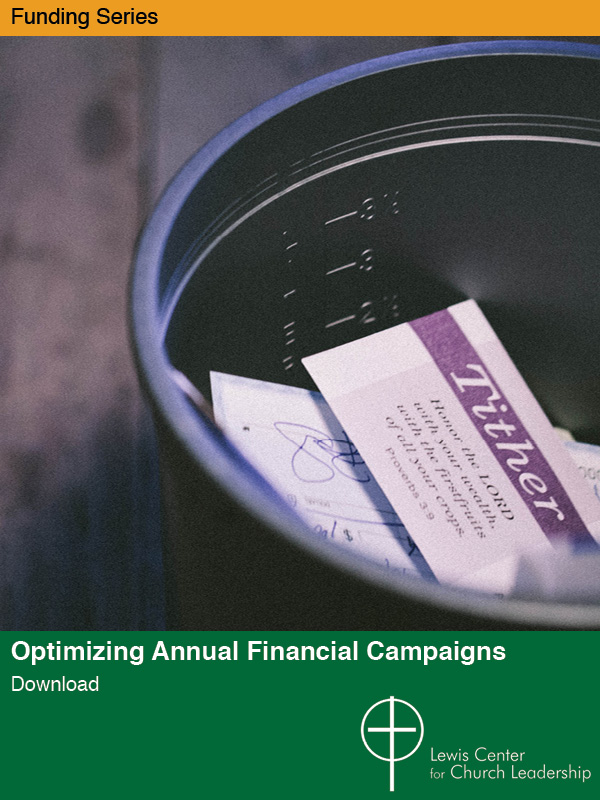Setting annual goals for your stewardship and generosity ministry is very important to help create focus and energy. These goals can come out of brainstorming sessions; however, they will need to be refined with those who are going to be working on these goals before final decisions and approvals are made because ownership is important for best results. Your leadership will result in growth in stewardship and generosity for your congregation.
Every year, it is helpful to evaluate the previous year and set your strategic goals for the new year.
My experience is that it helps to limit your strategic goals to three to four per year. Too few will not generate the leadership dynamic you need, and too many will be frustrating to all involved. Every year, it is helpful to evaluate the previous year and set your strategic goals for the new year.
Whether it is a one-year plan or a three-year plan, goals need to be specific, measurable, assignable, realistic, and time-related. Specific goals can be identified from those areas of your ministry that need improvement. Measurable ways of quantifying the progress or results are essential for evaluation. Assignable simply means who will be responsible for the project. Realistic expectations are important, and yet the expectations should encourage risk and great results. Failure should not be punished. Time-related results keep moving us forward toward completion or at least a sense of accomplishment.
Here are some strategic priorities for your stewardship and generosity team to consider as you seek to create a culture of stewardship that celebrates joyful and faithful giving, and also sacrificial giving. Which three or four are most needed in your congregation just now?
- To teach and interpret the biblical stewardship principles so that all members become disciples of Jesus Christ who are theologically informed, spiritually transformed, and daily living their faith.
- To preach and teach stewardship as an act of worship, and generosity as an expression of faith and a spiritual discipline.
- To invite all members to give a percentage of their income with the tithe (10 percent) as a goal.
- To lift up a clear expectation that every member will return an estimate of giving card every year as a faith witness.
- To conduct annual and capital stewardship campaigns that raise faith, commitment, and funds that enable your church to fulfill its vision and purpose.
- To integrate stewardship education into all ages and stages of Christian education programs.
- To call upon our members as well as church and public leaders to work for economic justice and to support ministries and causes that demonstrate generous stewardship.
- To provide stewardship coaching and support to those who are in financial crises.
- To celebrate and champion the act of generous giving by sharing stewardship stories of changed lives.
- To ask members to consider giving a legacy gift so that our church’s future will be sustained.
- To call all church leaders and staff to put God first in our living and giving.
- To steward and nurture relationships so that every member will be connected to a pastor, life group, task group, or ministry area.
Clayton’s new book, Propel: Good Stewardship, Greater Generosity (Abingdon Press, 2015), is available through Amazon or Cokesbury.
Related Resources:






